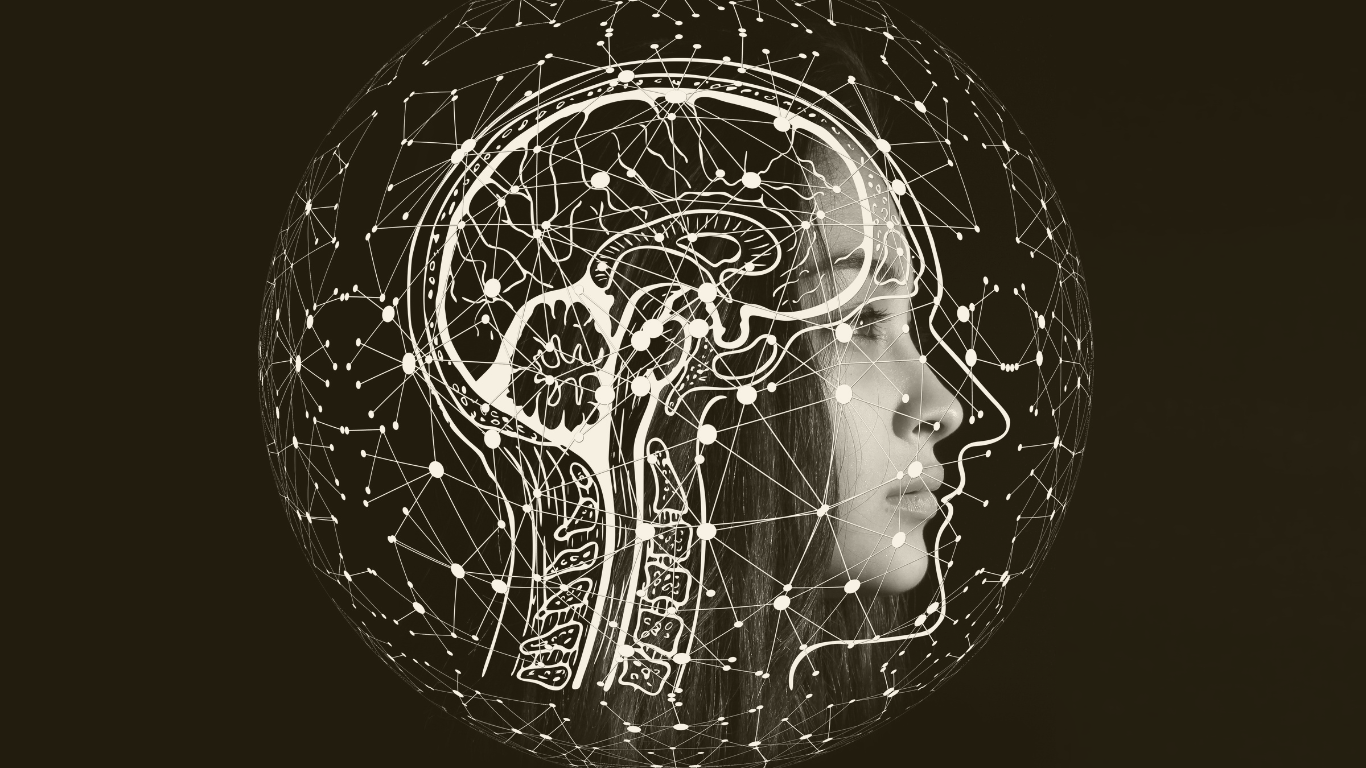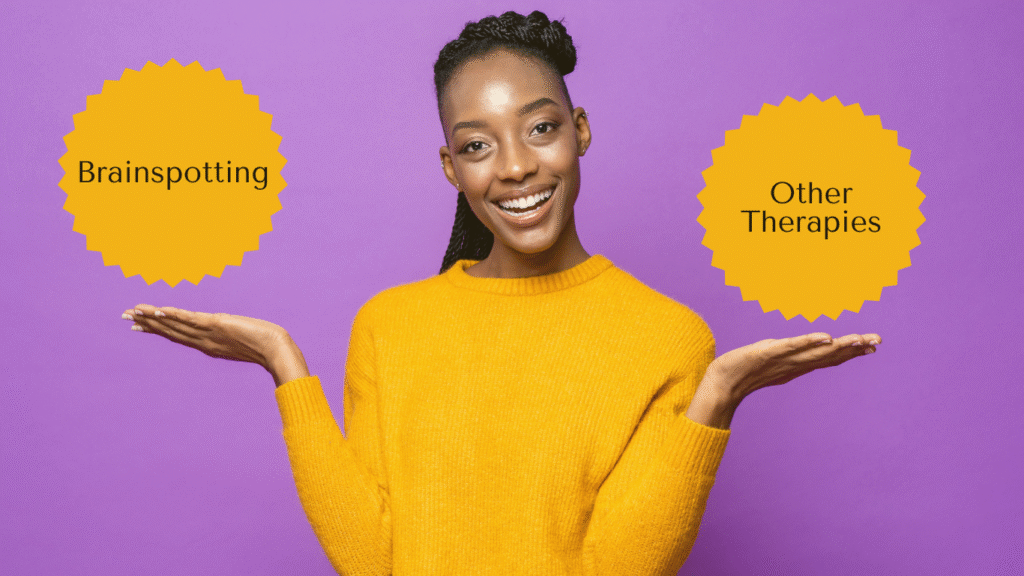Brainspotting in Atlanta, GA

Have you ever felt stuck, like you’re discussing a problem but not getting anywhere? Traditional talk therapy can be beneficial, but sometimes, we need something that goes a little deeper. That’s where Brainspotting in Atlanta (BSP) comes in.
MARR Treatment Centers’ brainspotting therapy – Atlanta, GA, and looking for a new approach to mental health and addiction recovery, we can help you.
What is Brainspotting?
Brainspotting is a type of psychotherapy developed by David Grand in 2003. It’s based on the idea that where you look affects how you feel. Sounds a little out there, right? But stick with me.
Essentially, certain eye positions can activate specific areas in your brain that hold onto emotional distress or unresolved trauma. By identifying and focusing on these “brainspots,” therapists can help you process and release these deeply held issues.
The Science-y Stuff
Think of it this way: your brain and body are constantly communicating. Traumatic events or difficult experiences can get “stuck” in your nervous system. Brainspotting helps to bypass the conscious, thinking part of your brain and access those deeper, more primal areas where these memories and emotions are stored. It’s a somatic experience that brings the body and mind together.
Unlike traditional talk therapy or even Eye Movement Desensitization and Reprocessing (EMDR), which uses structured eye movements, Brainspotting is more about finding that specific spot in your visual field that resonates with the issue you’re working on. It’s like tuning into a particular frequency on a radio.

Brainspotting vs. Other Therapies
You might wonder how Brainspotting compares to popular therapies like CBT (Cognitive Behavioral Therapy) or EMDR. Here’s a quick rundown:
- CBT (Cognitive Behavioral Therapy) focuses on changing negative thought patterns and behaviors. It’s very effective for many issues but primarily works on a conscious level.
- EMDR (Eye Movement Desensitization and Reprocessing): EMDR uses structured eye movements to help process traumatic memories. It can be very powerful, but some people find the structured approach less comfortable.
- Brainspotting: Brainspotting is more flexible and less directive than EMDR. It allows the client to lead the way, with the therapist providing support and guidance. It’s often described as a more profound, more organic process.
While CBT is tremendous for addressing current thought patterns and behaviors, Brainspotting dives deeper into the root causes of emotional distress. While EMDR is effective for trauma, Brainspotting offers a gentler, more client-led approach that can be beneficial for a broader range of issues.

Who Can Benefit from Brainspotting in Atlanta, GA?
Atlanta Brainspotting therapy is used to treat a variety of mental health concerns, and it can be a valuable tool for anyone seeking personal growth and well-being.
Here are some of the areas where it can be particularly effective:
- Trauma and PTSD (Post-Traumatic Stress Disorder): Brainspotting is highly effective in processing traumatic memories and reducing the symptoms of PTSD.
- Anxiety and Depression: By addressing underlying emotional distress, Brainspotting can help alleviate anxiety and depressive symptoms.
- Addictions: Brainspotting can help individuals understand and process the underlying trauma or emotional issues that contribute to addictive behaviors.
- Chronic Pain: Because chronic pain often has a psychological component, Brainspotting can help individuals process the emotional aspects of their pain and find relief.
- ADHD (Attention-Deficit/Hyperactivity Disorder): Brainspotting can help individuals with ADHD process emotional blocks and improve focus and self-regulation.
- Eating Disorders: By addressing underlying emotional issues and body image concerns, Brainspotting can support recovery from eating disorders.
- Obsessive-Compulsive Disorder (OCD): Brainspotting can help individuals process the anxiety and emotional distress that drive obsessive and compulsive behaviors.
- Performance Enhancement: Athletes, artists, and performers can use Brainspotting to overcome performance anxiety and enhance their abilities.
- Couples Counseling: Brainspotting can assist couples in resolving past and present issues, fostering deeper understanding and connection.
Whether you’re dealing with a specific issue or simply seeking personal growth, Brainspotting can be a powerful tool for transformation.
What to Expect in a Brainspotting Session
So, what does a Brainspotting session look like? Here’s a general idea:
- Getting Started: You’ll start by talking with your therapist about what you want to work on. This could be a specific issue, a feeling, or feeling stuck.
- Finding the Brainspot: Your therapist will guide you to find a “brain spot”—an eye position that feels connected to the issue you’re exploring. This might involve noticing subtle shifts in your body, emotions, or thoughts as you look at different points in your visual field.
- Processing: Once you’ve found a brainspot, you’ll focus on it and allow your brain to process whatever comes up. Your therapist will be there to support you and help you stay grounded.
- Integration: After the processing phase, you and your therapist will discuss what you experienced and how it relates to your goals.
The great thing about Brainspotting is that it’s a very individualized process. There’s no right or wrong way to do it. Your therapist will work with you to create a safe and supportive environment where you can explore your inner world.
Selecting a Brainspotting Therapist in Atlanta, GA
If you’re interested in trying Brainspotting in Atlanta, finding a qualified and experienced therapist is important. Look for licensed mental health professionals such as:
- LCSW (Licensed Clinical Social Worker)
- LPC (Licensed Professional Counselor)
- Licensed Marriage and Family Therapist
When searching for Brainspotting therapists, ask about their training and experience with the modality. Many therapists offer in-person sessions, while others may provide telehealth or Zoom sessions for those who prefer the convenience of online therapy. If you are in or near Roswell, GA, you can find therapists who specialize in a variety of specialties, including trauma, addiction, and more!
Is Brainspotting Right for You?
Brainspotting is a powerful therapy, but it’s not a magic bullet. It requires a willingness to be open, curious, and engaged. If you’re ready to explore your inner world and work through emotional blocks, Brainspotting could be a great fit.
Here are a few questions to ask yourself:
- Are you feeling stuck in traditional talk therapy?
- Do you have a history of trauma or difficult experiences?
- Are you open to trying a somatic approach to therapy?
- Are you willing to be patient and trust the process?
If you answered “yes” to most of these questions, Brainspotting might be worth exploring.
Make MARR Your Choice for Brainspotting in Atlanta
At MARR Treatment Centers, we are dedicated to providing comprehensive and cutting-edge care for individuals struggling with addiction and mental health issues. We are excited to incorporate Brainspotting therapy into our range of modalities to offer our clients an even more effective path to healing.
How MARR Uses Brainspotting
At MARR, Brainspotting is integrated into our programs to address the underlying trauma and emotional distress that often contribute to addiction and other behavioral health issues. Our licensed and experienced therapists use Brainspotting with other evidence-based therapies to provide a holistic, individualized treatment experience.
Our Programs That Utilize Brainspotting in Atlanta
- Men’s and Women’s Addiction Recovery Programs: Our core addiction recovery programs utilize Brainspotting to help clients process past traumas, address emotional triggers, and develop healthier coping mechanisms.
- Mental Health Programs: For clients struggling with anxiety, depression, PTSD, and other mental health concerns, Brainspotting offers a powerful tool for emotional healing and personal growth.
- Dual Diagnosis Programs: We recognize the importance of addressing both addiction and mental health issues simultaneously. Brainspotting is used in our dual diagnosis programs to provide integrated care for clients with co-occurring disorders.
The MARR Difference
MARR Treatment Centers offers a unique and supportive environment for healing. Our team of compassionate professionals includes psychiatrists, medical doctors, licensed therapists, social workers, and certified addiction counselors. We are committed to providing personalized care that addresses each client’s unique needs.
By choosing MARR, you are choosing:
- Experienced and Qualified Therapists: Our Brainspotting therapists are licensed professionals with extensive training and experience.
- Individualized Treatment Plans: We tailor our treatment plans to meet each client’s specific needs, ensuring the most effective path to recovery.
- Holistic Approach: We address the physical, emotional, and spiritual aspects of healing to promote lasting recovery and well-being.
- Supportive Community: Our clients benefit from a strong sense of community and support, essential for long-term success.
A Brighter Future Awaits
If you’re in Atlanta, GA, and looking for a way to break free from emotional blocks and create lasting change, Brainspotting therapy could be the answer. Remember, seeking help is a sign of strength, and many qualified therapists in the area can guide you on your journey.
If you or a loved one is struggling with addiction or mental health issues, we encourage you to reach out to MARR Treatment Centers. Our team is here to answer your questions, provide support, and help you find the right path to healing.
Take the first step towards a brighter future. Contact us today at (678) 805-5100 to learn more about our programs and how Brainspotting can help you achieve lasting recovery and well-being.
